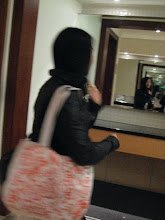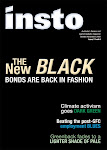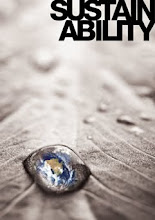0
The Public Sphere
Posted by JSYL
on
Thursday, March 29, 2007
in
The Secret Life of Journalists
Haven't blogged in a while. So to fill the 'space'- I ripped something I did for one of my Journalism subjects:
[On a side note, I personally felt much more comfortable discussing our collective role as journalists in contributing to the public sphere, i.e. as facilitators of public discussion and knowledge, than as professionals or intellectuals, as I discussed in my first post. I suppose its because I see the journalist’s ‘professional’ role as being inextricably and innately linked to being a mouthpiece for the voices of her or his fellow man, as opposed to a pedestal or soap box upon which one is given limitless power to rant and rave in the name of intellectual salvation.]
Habermas’ public sphere is ‘a domain of our social life here such a thing as public opinion can be formed [where] citizens…deal with matters of general interest without being subject to coercion…[to] express and publicise their views.’ (Habermas, 1997, cited by McKee, 2005, p.4.) There were many different ideas thrown around this week about how to bring this ideal to life through the media. Despite their disparity, there was clearly an underlying consensus that there is something seriously lacking in the ‘Australian’ public sphere as it stands today.
McKee takes the post modern view that criticisms of changes to the public sphere as becoming ‘trivialised’ or ‘superficial’ are really just a reflection of the way it has begun meeting the cultural and political sub-groups’ needs to express their individual concerns in a way that is unique. Chris conversely argued that this provides no way of analysing the question and use of power, or symbolic violence (Nash, March 29, 2007) He used a Miranda Devine article among others, to illustrate the fact that cultural diversity is not, as McKee would have us believe, ‘benign’, but fraught with its own internal problems.
McKee’s argument can be likened to the way the term ‘multiculturalism’ has evolved from ‘a way of ensuring mutual understanding and acceptance’ to ‘a bunch of different looking people standing on the same bit of land’. He provides no link between the two, instead assuming that if the media is jam-packed with as many different voices as possible, they will eventually find a way to speak with each other coherently in meaningful political discussion. It provides no answer to the little racist in all of us, that asks not only that our voice be heard, but that our voice to be louder than the rest. And maybe there is no answer- maybe symbolic violence is simply an inevitable bi-product of the existence of a ‘public sphere’ at all. I mean, anyone who rubs sticks together long enough is bound to (given the right conditions), generate a bit of smoke, right?
However McKee’s view cannot be dismissed out of hand. Profoundly, he draws no distinction between the present fragmentation of the media to include youth, feminist, gay and working class views, and that, which occurred to accommodate ethnic minorities and women at the start of the modern age (McKee, 2005, p.19). I.e. because all views are just as worthy of political discussion, and therefore, of having a place in the public sphere, we intellectuals should not deem them illegitimate simply because they are different to our own views. I found this really interesting because, in this way, Chris’ argument against Devine could be seen as simply a moral censorship of someone with a right to a place in the public sphere.
Fear that Devine has a place in the public sphere I belong to aside for a moment, because here’s the really scary part: McKee would probably respond to Chris’ critique, that the groups he refers to in his public sphere are those genuinely belonging to different cultural backgrounds, and not to bigots that distort their views like Devine. But is racist rhetoric by Miranda Devine and others of the tabloid, sensational, fragmented media the only way McKee’s public sphere can be seen to exist? Do the majority of Australians have the capacity to accept views that are at least described as belonging to ethnic minorities (however skewed or distorted they are in reality) but for tabloid ‘journalists’?
And that made me question- who do we want “in” the public sphere? Who deserves to be in the public sphere? And who decides the answers to these questions? What gives them the right? Does Chris mean that only those with culturally sensitive views should be given an‘All-access’ pass? Or is this simply an argument against the increasing prominence of such views, to the point of saturation and ‘tabloidisation’? Where must the line be drawn to ensure all views are balanced then? It seems like a fine line to me, and one that can never really be accurately measured. Excuse my nihilistic tendencies but perhaps this means a truly public sphere can never really exist.
However Chris argued that Kingston’s Webdiary is the closest thing we’ve come to finding a way for the public sphere to exist in its most idealistic form. In looking at the effect of the Internet on political discussion, Davis argued that online forums are fraught with problems that make online democracy impossible. “The Web is not a virtual political community; it is a collection of geographically disparate, isolated individuals.” (Davis, 2005, p.122)
But interestingly, the steps Kingston took to create a higher level of accountability for herself meet with the exact criteria of Davis’ ideal public space. He argues that moderators of forums must actively listen to participants needs to take in a variety of viewpoints and get a better understanding of the complex layers underlying the concept of ‘public good’ (Davis, 2005, p.130). Similarly, Kingston found that the more she invested into creating a relationship of trust between her and participants, the better the discussion between them became (Kingston, 2005).
In this week’s tutorial, we were asked to write down answers to the questions “Who am I?” and “Who speaks for me?” I found myself looking at all aspects of my identity but in the end, always coming back to my cultural identity as an Australian Malaysian-Chinese person. I’ve always felt that these two parts, rather than fragmenting, actually enrich who I am and what I believe in. But it can get confusing, admittedly, for this very reason. And as for who speaks for me? Those most like me, I suppose. In the media? Well, no one. Why? Because McKee’s argument does nothing to encourage people ‘like me’ to speak up, but also because Chris’ argument cannot prevent people like Miranda Devine from having a ‘place’, from distorting the voice I would otherwise have.
References:
Davis, R., Politics Online 2005, Routledge, New York.
Kingston, M., Diary of a Webdiarist: Ethics goes online, 2005
McKee, A. 2005: The Public Sphere: An Introduction, Cambridge Uni, Press. c.1 ‘Introduction’
[On a side note, I personally felt much more comfortable discussing our collective role as journalists in contributing to the public sphere, i.e. as facilitators of public discussion and knowledge, than as professionals or intellectuals, as I discussed in my first post. I suppose its because I see the journalist’s ‘professional’ role as being inextricably and innately linked to being a mouthpiece for the voices of her or his fellow man, as opposed to a pedestal or soap box upon which one is given limitless power to rant and rave in the name of intellectual salvation.]
Habermas’ public sphere is ‘a domain of our social life here such a thing as public opinion can be formed [where] citizens…deal with matters of general interest without being subject to coercion…[to] express and publicise their views.’ (Habermas, 1997, cited by McKee, 2005, p.4.) There were many different ideas thrown around this week about how to bring this ideal to life through the media. Despite their disparity, there was clearly an underlying consensus that there is something seriously lacking in the ‘Australian’ public sphere as it stands today.
McKee takes the post modern view that criticisms of changes to the public sphere as becoming ‘trivialised’ or ‘superficial’ are really just a reflection of the way it has begun meeting the cultural and political sub-groups’ needs to express their individual concerns in a way that is unique. Chris conversely argued that this provides no way of analysing the question and use of power, or symbolic violence (Nash, March 29, 2007) He used a Miranda Devine article among others, to illustrate the fact that cultural diversity is not, as McKee would have us believe, ‘benign’, but fraught with its own internal problems.
McKee’s argument can be likened to the way the term ‘multiculturalism’ has evolved from ‘a way of ensuring mutual understanding and acceptance’ to ‘a bunch of different looking people standing on the same bit of land’. He provides no link between the two, instead assuming that if the media is jam-packed with as many different voices as possible, they will eventually find a way to speak with each other coherently in meaningful political discussion. It provides no answer to the little racist in all of us, that asks not only that our voice be heard, but that our voice to be louder than the rest. And maybe there is no answer- maybe symbolic violence is simply an inevitable bi-product of the existence of a ‘public sphere’ at all. I mean, anyone who rubs sticks together long enough is bound to (given the right conditions), generate a bit of smoke, right?
However McKee’s view cannot be dismissed out of hand. Profoundly, he draws no distinction between the present fragmentation of the media to include youth, feminist, gay and working class views, and that, which occurred to accommodate ethnic minorities and women at the start of the modern age (McKee, 2005, p.19). I.e. because all views are just as worthy of political discussion, and therefore, of having a place in the public sphere, we intellectuals should not deem them illegitimate simply because they are different to our own views. I found this really interesting because, in this way, Chris’ argument against Devine could be seen as simply a moral censorship of someone with a right to a place in the public sphere.
Fear that Devine has a place in the public sphere I belong to aside for a moment, because here’s the really scary part: McKee would probably respond to Chris’ critique, that the groups he refers to in his public sphere are those genuinely belonging to different cultural backgrounds, and not to bigots that distort their views like Devine. But is racist rhetoric by Miranda Devine and others of the tabloid, sensational, fragmented media the only way McKee’s public sphere can be seen to exist? Do the majority of Australians have the capacity to accept views that are at least described as belonging to ethnic minorities (however skewed or distorted they are in reality) but for tabloid ‘journalists’?
And that made me question- who do we want “in” the public sphere? Who deserves to be in the public sphere? And who decides the answers to these questions? What gives them the right? Does Chris mean that only those with culturally sensitive views should be given an‘All-access’ pass? Or is this simply an argument against the increasing prominence of such views, to the point of saturation and ‘tabloidisation’? Where must the line be drawn to ensure all views are balanced then? It seems like a fine line to me, and one that can never really be accurately measured. Excuse my nihilistic tendencies but perhaps this means a truly public sphere can never really exist.
However Chris argued that Kingston’s Webdiary is the closest thing we’ve come to finding a way for the public sphere to exist in its most idealistic form. In looking at the effect of the Internet on political discussion, Davis argued that online forums are fraught with problems that make online democracy impossible. “The Web is not a virtual political community; it is a collection of geographically disparate, isolated individuals.” (Davis, 2005, p.122)
But interestingly, the steps Kingston took to create a higher level of accountability for herself meet with the exact criteria of Davis’ ideal public space. He argues that moderators of forums must actively listen to participants needs to take in a variety of viewpoints and get a better understanding of the complex layers underlying the concept of ‘public good’ (Davis, 2005, p.130). Similarly, Kingston found that the more she invested into creating a relationship of trust between her and participants, the better the discussion between them became (Kingston, 2005).
In this week’s tutorial, we were asked to write down answers to the questions “Who am I?” and “Who speaks for me?” I found myself looking at all aspects of my identity but in the end, always coming back to my cultural identity as an Australian Malaysian-Chinese person. I’ve always felt that these two parts, rather than fragmenting, actually enrich who I am and what I believe in. But it can get confusing, admittedly, for this very reason. And as for who speaks for me? Those most like me, I suppose. In the media? Well, no one. Why? Because McKee’s argument does nothing to encourage people ‘like me’ to speak up, but also because Chris’ argument cannot prevent people like Miranda Devine from having a ‘place’, from distorting the voice I would otherwise have.
References:
Davis, R., Politics Online 2005, Routledge, New York.
Kingston, M., Diary of a Webdiarist: Ethics goes online, 2005
McKee, A. 2005: The Public Sphere: An Introduction, Cambridge Uni, Press. c.1 ‘Introduction’








